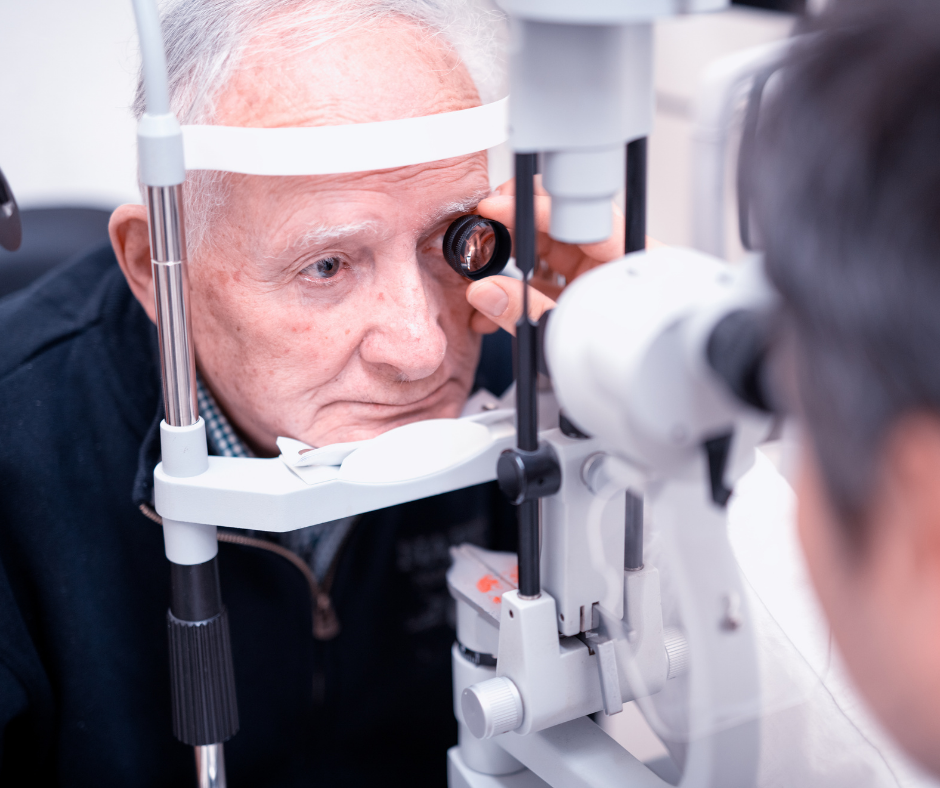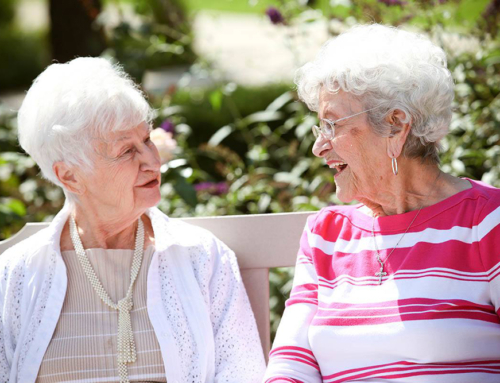Glaucoma is a group of eye diseases that are the number one cause of blindness around the world. Anyone can develop this eye disease but it is most common in older people. Learning about this condition and the warning signs will help adults protect their eyesight. Those with blindness caused by glaucoma will find the extensive care they need through assisted living.
Understanding Glaucoma
Multiple types of glaucoma can cause a person to lose their vision. Glaucoma causes an increase in pressure inside the eye, resulting in damage to the optic nerve. Eventually, the damage becomes so pronounced that it causes blindness.
Some types of glaucoma are caused by other diseases, such as diabetes. Having diabetes doubles the chances of a person developing glaucoma.
Regrettably, this group of eye diseases affects about three million people in the United States. One of the biggest risks of developing blindness with glaucoma is waiting to seek treatment. Unfortunately, many people do not know they have this eye disease. The early signs and symptoms of glaucoma are not always noticed right away, especially by those who do not know what to look for in their symptoms.
What Are the First Signs of Glaucoma?
The most common type of glaucoma is angle glaucoma. This form of glaucoma rarely shows any outward signs until great damage has begun occurring. Individuals must see their eye doctors regularly for yearly eye exams, especially if they are at risk of developing glaucoma. A simple eye exam and test allow a doctor to diagnose this eye disease.
Signs and Symptoms of Various Types of Glaucoma
Because there are multiple types of glaucoma, there are also different signs and symptoms. A person should consider the following to look for any signs of these eye conditions developing.
- Open-angle glaucoma causes the eye to stop draining properly. When the eye cannot drain, pressure begins to rise inside, causing damage to the optic nerve. Because this condition comes on gradually, it typically does not cause noticeable vision changes or pain until it progresses.
- Acute-angle glaucoma occurs when the iris of the eye prevents proper drainage. With this type of glaucoma, eye pressure begins to rise dramatically and quickly. If the pressure is not addressed right away, pronounced damage may occur to the optic nerve, causing blindness. Those who go blind from this disease often need assisted living.
People suffering from glaucoma may experience multiple symptoms. The following symptoms typically do not begin to show until the eye disease has become advanced.
- Blurry vision
- Headaches
- Severe eye pain
- Seeing halos around lights
- Sensitivity to light
- Nausea and vomiting
What Are the Risk Factors of Glaucoma?
While anyone can develop glaucoma, some people are more prone to acquiring this eye disease than others. The following offers information on the risk factors for glaucoma. Those who develop the condition need community support and treatment.
- Those over the age of 60 have a risk six times greater than normal.
- People who have diabetes double their risks.
- If a person has high blood pressure, they have a greater risk.
- People with a family history of glaucoma may also be at a higher risk.
- Those who have been through previous eye surgery may develop glaucoma.
- Individuals who use steroid inhalers for long periods may also be at a greater risk of glaucoma development.
Those who have multiple risk factors should especially be cautious in making sure they seek regular eye exams. Yearly eye examinations help ensure a person’s eyes are healthy and no undue pressure has developed.
How Is Glaucoma Treated?
Once someone is diagnosed with glaucoma, the goal of the doctor will be to slow down the progression of the disease so the patient’s eyesight is protected. Medications may help slow down the progression of the disease. While there is no cure for this eye disease, early intervention helps slow down the damage.
Those who go blind because of glaucoma need to learn about their options for assisted living services. These services help those who can no longer see well because of the damage to their optic nerves.
Seeking medical care at the slightest sign of glaucoma will help with the treatment process. This eye disease is most successfully managed when caught as early as possible.
We at Villa de San Antonio are dedicated to providing a warm and inviting community that fosters sound physical and mental health for seniors. With a wide array of lifestyle options and integrated services, seniors will live life to the fullest while in the safe confines of a welcoming community.






